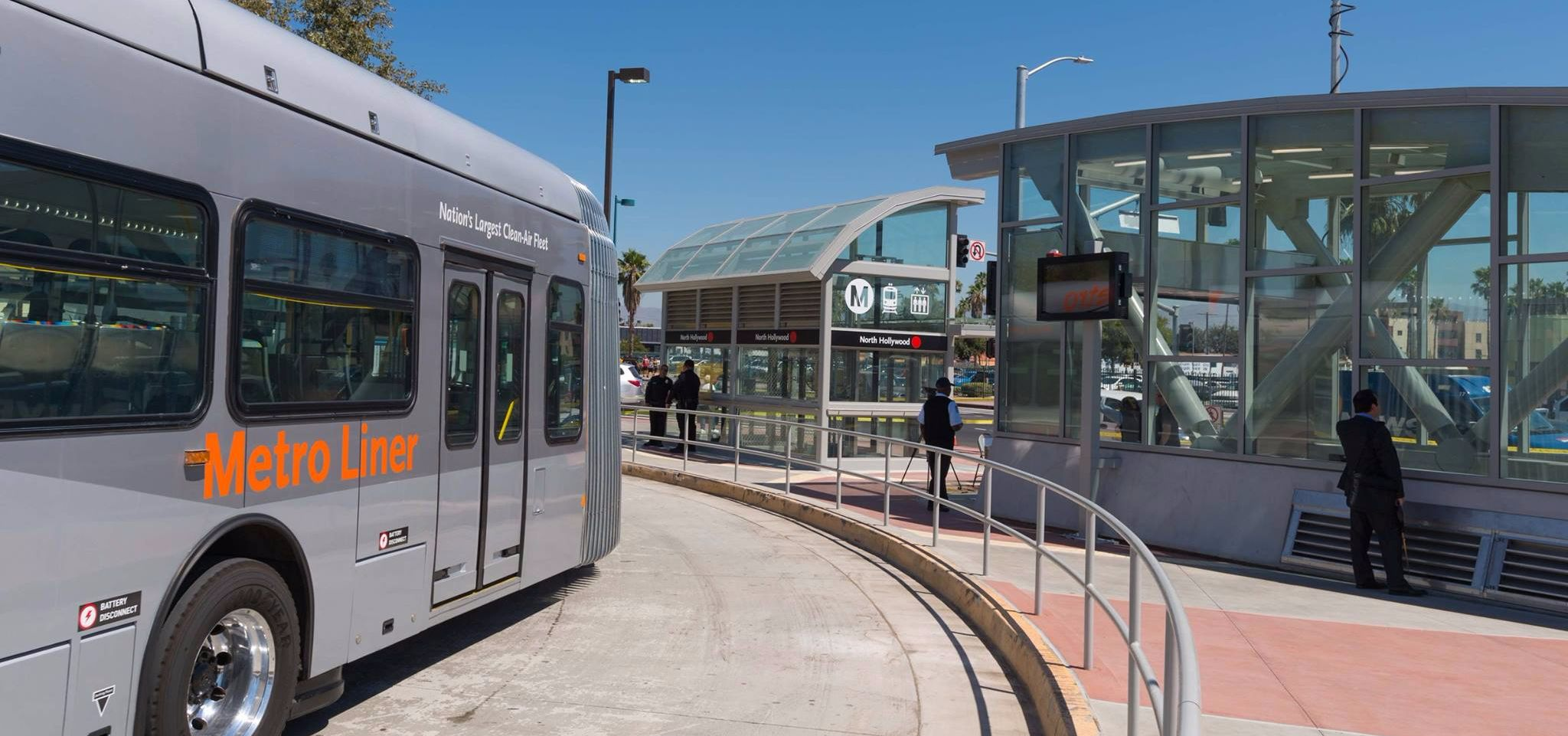Get an overview of our bonds and ratings.
Get Issuer Alerts
Add this issuer to your watchlist to get alerts about important updates.
Get an overview of our bonds and ratings.
Bond Sales
Roadshows
There are currently no roadshows available.
Ratings
- Moody’s
- Aa1
- S&P
- AAA
- Moody’s
- Aa1
- S&P
- AAA
- Fitch
- AA+
- Moody’s
- Aa1
- S&P
- AAA
- Moody’s
- Aa2
- S&P
- AA+
- Kroll
- AAA
- S&P
- AA
- Fitch
- AA
Bond Programs
Metro’s Debt Program
Metro issues long-term debt to provide funds to finance a portion of the capital costs of the county transportation system. The majority of Metro’s outstanding long-term debt is secured by the Los Angeles County voter approved Proposition A, Proposition C, or Measure R sales taxes, net of administration costs and allocations to local governments. Metro issues sales tax revenue refunding bonds generally to reduce debt service costs by refinancing previously issued sales tax revenue bonds and/or short-term borrowing instruments when more favorable interest rates or financing terms are available. Refundings may also be executed for reasons other than to achieve cost savings, such as to restructure the repayment schedule of the debt, to change the type of debt instruments being used, or to retire an indenture in order to remove undesirable covenants. For more information on Metro’s policies and procedures for issuing debt, please see the most recent Board approved Debt Policy here.
Proposition A Sales Tax Revenue Bonds
The Proposition A Sales Tax was approved by voters in November 1980 and began collections on July 1, 1982. The Proposition A Sales Tax imposes a tax of ½ of 1% of the gross receipts of retailers from the sale of tangible personal property sold at retail in the County and a use tax at the same rate upon the storage, use or other consumption in the County, subject to certain limited exceptions, and is not limited in duration. Proposition A Sales Tax Revenue Bonds are secured by a pledge on these collections, less an administrative fee paid to the California Department of Tax and Fee Administration in connection with the collection and disbursement of the Proposition A Sales Tax, and less 25% thereof which is allocated to local jurisdictions for local transit purposes.
AMOUNT OF LAST BOND SALE
$57,745,000
BOND RATINGS
Aa1/AAA/AAA
LONG-TERM DEBT OUTSTANDING AS OF 1-1-2023
$760,835,000

Proposition C Sales Tax Revenue Bonds
The Proposition C Sales Tax was approved by voters in November 1990 and began collections on July 1, 1991. The Proposition C Sales Tax imposes a tax of ½ of 1% of the gross receipts of retailers from the sale of tangible personal property sold at retail in the County and a use tax at the same rate upon the storage, use or other consumption in the County of such property purchased from any retailer for storage, use or other consumption in the County, subject to certain limited exceptions, and is not limited in duration. Proposition C Sales Tax Revenue Bonds are secured by a pledge on these collections, less an administrative fee paid to the California Department of Tax and Fee Administration in connection with the collection and disbursement of the Proposition C Sales Tax, and less 20% thereof which is allocated to local jurisdictions for public transit, paratransit and related services.
AMOUNT OF LAST BOND SALE
$321,905,000
BOND RATINGS
Aa1/AAA/AA+
LONG-TERM DEBT OUTSTANDING AS OF 1-1-2023
$1,771,705,000

Measure R Sales Tax Revenue Bonds
The Measure R Sales Tax was approved by voters in November 2008 and began collections on July 1, 2009. The Measure R Sales Tax imposes a tax of ½ of 1% of the gross receipts of retailers from the sale of tangible personal property sold at retail in the County and a use tax at the same rate upon the storage, use or other consumption in the County of such property purchased from any retailer for storage, use or other consumption in the County, subject to certain limited exceptions. As approved by the voters, the Measure R Sales Tax is limited to 30 years in duration and terminates on June 30, 2039. Measure R Sales Tax Revenue Bonds are secured by a pledge on these collections, less an administrative fee paid to the California Department of Tax and Fee Administration in connection with the collection and disbursement of the Measure R Sales Tax, and less 15% thereof which is allocated to local jurisdictions within the county pursuant to the Measure R Ordinance. Additionally, the Measure R Sales Tax alone does not fully fund all projects. The Measure Ordinance contains the Measure R Expenditure Plan that identifies the projects to be funded and additional fund sources that will be used to complete the projects.
AMOUNT OF LAST BOND SALE
$514,500,000
BOND RATINGS
Senior - Aa1/AAA/NR
Junior Subordinate - NR/AA/AA
LONG-TERM DEBT OUTSTANDING AS OF 1-1-2023
$2,817,000,000

General Revenue Bonds
The General Revenue Bonds are secured by a pledge of farebox revenues, fee and advertising revenues, and Proposition A Sales Tax and Proposition C Sales Tax revenues that remain after the application of those revenues to the payment of principal and interest on certain Proposition A Sales Tax-secured obligations, in the case of the Proposition A Sales Tax, and certain Proposition C Sales Tax secured obligations, in the case of the Proposition C Sales Tax. The General Revenue Bonds were issued to generate financing for the acquisition, construction and major rehabilitation of capital assets. Metro issued General Revenue Bonds to finance the cost of a new 26-story headquarters building for Metro, including the parking and related improvements. Refunding bonds were issued subsequent to the original issue to achieve debt service savings. In September 2015, the Board approved the closure of this lien to future new money issuances to be effective upon the delivery of the Series 2015 bonds. The lien remains open to any future refundings of the currently outstanding bonds.
AMOUNT OF LAST BOND SALE
$64,770,000
BOND RATINGS
Aa2/AA+/NR
LONG-TERM DEBT OUTSTANDING AS OF 1-1-2023
$52,290,000

Short-Term Borrowing Program
Metro’s short-term borrowing programs provide flexible, cost-effective methods of short-term financing for Metro’s capital program. The short-term borrowing programs generally provide interim taxable or tax-exempt financing until grant reimbursement or other funding sources are received, or until permanent financing is arranged. Metro currently has three separate short-term borrowing programs secured by Proposition A, Proposition C, and Measure R Sales Taxes separately. These programs are each secured by their respective sales tax revenues and in each case are subordinate to their sales tax revenue bond counterparts.

